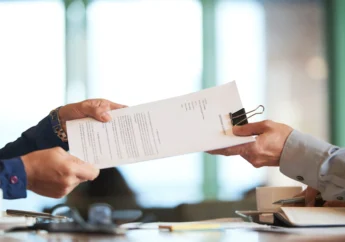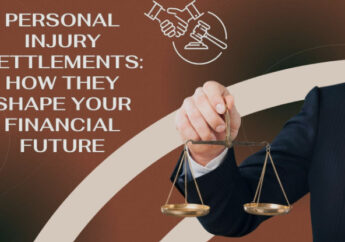A Comprehensive Guide To Handling Post-Accident Anxiety And Stress
by Abdul Aziz Mondal Legal Published on: 20 October 2023 Last Updated on: 23 October 2023

After an accident, it’s entirely natural to experience heightened anxiety and stress. These emotional responses can vary in intensity from person to person but are often triggered by the sudden shock and fear associated with accidents. It’s crucial to recognize that these feelings are typical reactions to a traumatic event, and with the right strategies, you can manage and overcome them.
Post-accident anxiety can manifest in several ways, including restlessness, trouble concentrating, irritability, and a sense of impending doom. On the other hand, stress can lead to physical symptoms like headaches, muscle tension, rapid heartbeat, and difficulty sleeping.
This comprehensive guide will explore these reactions in more detail, discuss their potential long-term effects, and provide practical strategies to cope with and alleviate post-accident anxiety and stress.
Post-Accident Anxiety and Stress
After being involved in an accident, whether a car crash, workplace incident, or any other type of traumatic event, it’s normal to experience heightened anxiety and stress. These emotional responses can vary in intensity from person to person but are often triggered by the sudden shock and fear associated with accidents.
Recognizing the Signs of Post-Accident Anxiety and Stress
- Physical symptoms: These symptoms may include things like increased heart rate, muscle tension, headaches, and gastrointestinal discomfort. They can be especially challenging to cope with as they directly impact your physical well-being.
- Emotional symptoms: Anxiety and stress can manifest as overwhelming fear, worry, irritability, sadness, or hopelessness. You may also experience mood swings or difficulty concentrating.
- Behavioral symptoms can range from restlessness and difficulty sleeping to avoidance behaviors, such as steering clear of places or situations that remind you of the accident.
The Importance of Legal Support
Accidents often come with legal and financial complexities, adding to stress. Seeking legal support from a qualified attorney can help alleviate these burdens. For more information, contact Whitley Law Firm for a free consultation as soon as possible so you can get started on your claim.
The following are some things one can do to find the perfect attorney for their claim.
- Experience: Look for an experienced lawyer with an impeccable track record in handling cases similar to yours. This ensures they have the knowledge and skills needed to advocate effectively on your behalf.
- Consultation: Meet potential attorneys to discuss your case and gauge their understanding and commitment.
- Communication: Choose a law firm and a lawyer dedicated to communicating clearly and regularly. Keeping you informed about your case’s progress can reduce stress.
- References and reviews: Read client reviews and ask for references to understand an attorney’s track record.
Navigating the Legal Process
- Filing a lawsuit: If negotiations with the at-fault party or their insurance company aren’t successful, your attorney may recommend filing a lawsuit. This step can extend the legal process but is essential for pursuing fair compensation.
- Discovery phase: During this discovery phase, both parties gather evidence, exchange information, and prepare for trial. It can be time-consuming but crucial for building a strong case.
- Settlement negotiations: Before going to trial, there’s often an opportunity for settlement negotiations. You and your attorney will work together to secure the best possible outcome without needing a trial.
Coping Strategies for Post-Accident Anxiety and Stress
In the aftermath of an accident, dealing with anxiety and stress is a critical aspect of the recovery process. These next few points explore effective coping strategies to help individuals manage the emotional challenges that often follow such traumatic events.
- Opt for professional help: Consulting with a psychotherapist can provide you with effective coping strategies. They can offer a safe space to discuss your feelings and help you develop tools for managing anxiety and stress.
- Stay connected: Share your thoughts and emotions with trusted friends and family members. Talking about your experience can provide emotional relief and help you feel less isolated.
- Practice relaxation techniques: Techniques like deep breathing, mindfulness meditation, and relaxation can help reduce physical and emotional tension.
- Maintain a healthy lifestyle: Eating well, exercising regularly, and getting a good rest every night can positively impact your mental health and resilience.
- Limit exposure to triggers: If certain places, people, or activities trigger your anxiety, consider minimizing exposure until you feel more in control.
The Types of Accidents and Their Unique Stressors
From car accidents to workplace incidents, understanding the nuances of these situations is essential for effectively addressing the resulting anxiety and stress. Below are the various types of accidents and how they can cause unique stressors:
- Car Accidents: The shock and potential injuries associated with car accidents can lead to significant anxiety. Dealing with insurance claims, negotiating a settlement amount, and hefty medical bills can add to the stress.
- Workplace Accidents: Accidents at work can result in physical injuries and concerns about job security and financial stability.
- Slip and Fall Accidents: These accidents can lead to severe injuries and anxiety about potential long-term consequences.
- Medical Malpractice: Experiencing harm due to medical negligence can be emotionally distressing, especially when you trust a medical professional with your care.
Take Hold Of Your Health Following An Accident
Dealing with post-accident anxiety and stress can be challenging, but it’s essential to remember that you’re not alone. Seeking emotional support from loved ones and professional help can significantly affect your recovery.
Additionally, having a trusted attorney by your side can help alleviate the legal and financial burdens, allowing you to focus on your well-being. Always remember that healing takes time, and seeking help along the way is okay.
Read Also:



































































































